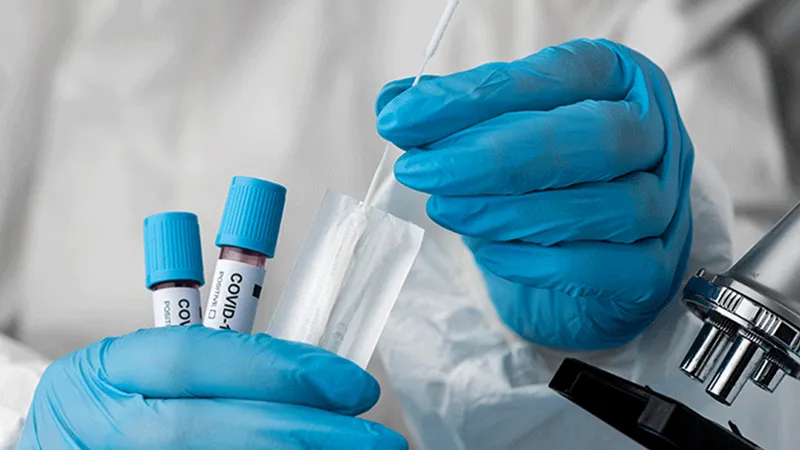Keeping up with the booming self-testing phenomenon amidst third COVID-19 wave
In a recent panel discussion with YourStory’s Daily Dispatch, powered by HSBC, Hasmukh Rawal, MD and Co-founder, Mylab, and Jagannath Shinde, President, All India Organisation of Chemists and Druggists, come together to share insights on the rising demand for COVID-19 self-testing kits in India.
The demand for self-testing or at-home testing has gained more traction amidst a rising number of cases during the third COVID-19 wave.
Seeing the demand rise during the second wave, Pune-based had launched its self-testing kit, Mylab CoviSelf COVID-19 Rapid Antigen Self Test Kit.
During a panel discussion on YourStory’s Daily Dispatch, Hasmukh Rawal, Managing Director and Co-founder, Mylab, highlighted the immediate surge in demand for self-testing kits, and giving them the power of testing at home is crucial.
He added, “Every government is shifting towards self-testing. It is a good moment for a company like ours where we are always innovating, and it inspires us to do more.”

Jagannath Shinde, President, All India Organisation of Chemists and Druggists, added that during the third wave — because of delay in testing by pathological labs and other such factors — the demand for the self-testing kits has spiked.
Commenting on the accuracy these kits provide, Hasmukh said the RT-PCR test is the gold standard for detecting the virus. He explained that a positive result from the self-testing kit does not require a re-confirmation as it is accurate.
However, in case of a negative result, users should get a separate RT-PCR test done to confirm if the patient is still showing symptoms. “Most of the time, if the test turns out to be negative, on the second or third day, the test might show positive,” he added.
With Mylabs’ testing kit, users can take an image and get the results, helping the government to get the data. Moreover, the startup is encouraging chemists and pharmacists to train people to do these self-tests. It also provides several educational videos to help people understand the self-testing process.
Besides COVID-19 self-testing kits, there are already self-testing kits available for blood pressure, diabetes, and pregnancy. However, according to Jagannath, post the tests, users should show the reports to a doctor and get a proper diagnosis.
While there is a massive demand in the market, many companies were not prepared to meet it. Mylab will be touching its full production capacity by the end of this week, Hasmukh said.
Its current manufacturing capacity is 1.5 million tests per day, and the startup is prepared to pull twice the number if need be, he shared. Additionally, Mylab has sufficient raw materials and a strong distribution network to help with its vision.
There is a lot of innovation happening at Mylab, with a whole lot of new products in the pipeline, said Hasmukh.
Mylab will be launching three tests — a developed version of home-testing kits, a simple RT-PCR test, and a speedy test that gets the report out in 2 minutes or so.
According to Jagannath, whenever a new product launches in the market, they get to know about it within no time as there are a large number of manufacturers in their network who make it available to the people through their retail channels.
He believes self-testing as a phenomenon would help Indian consumers.
Edited by Suman Singh








